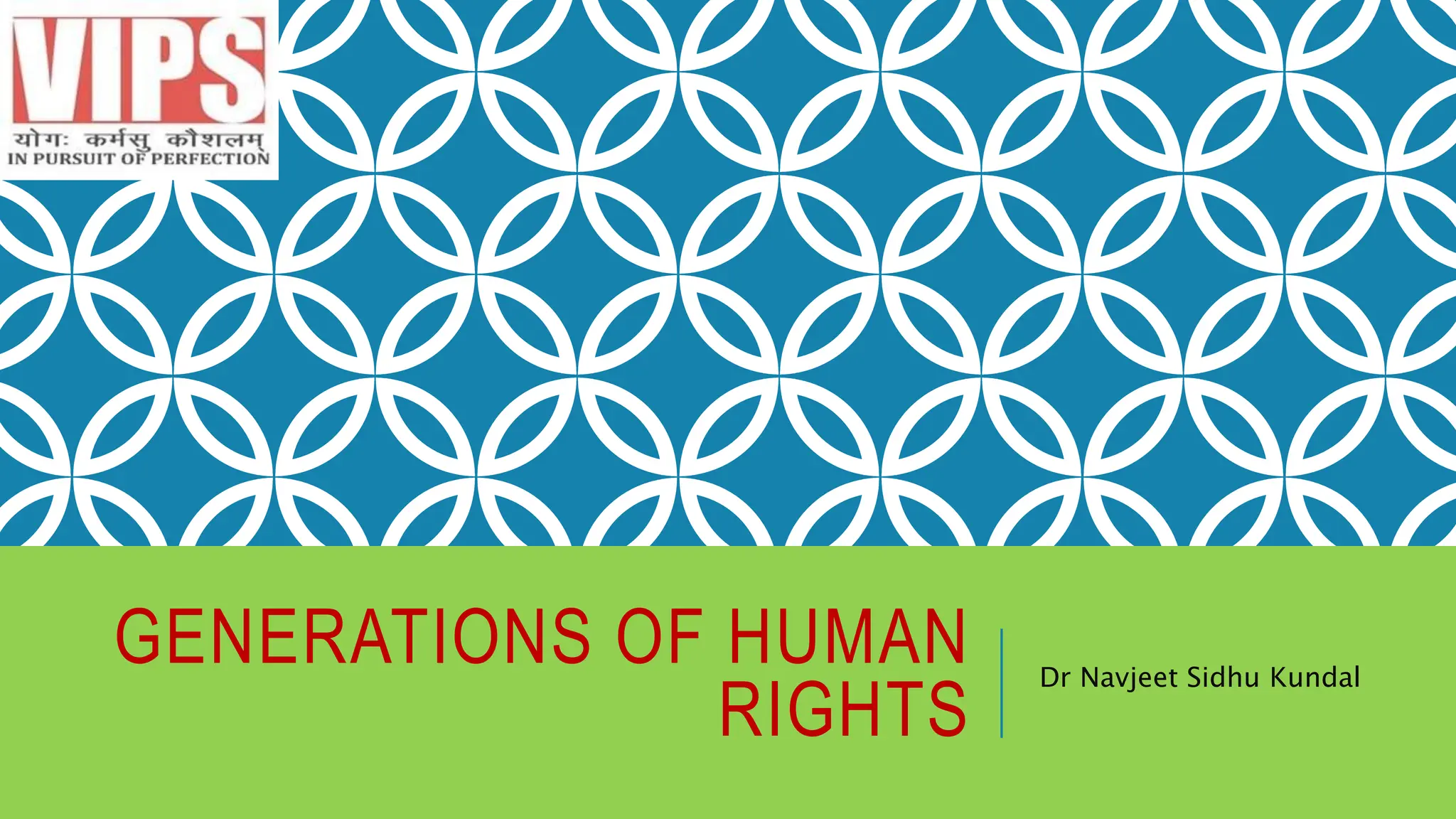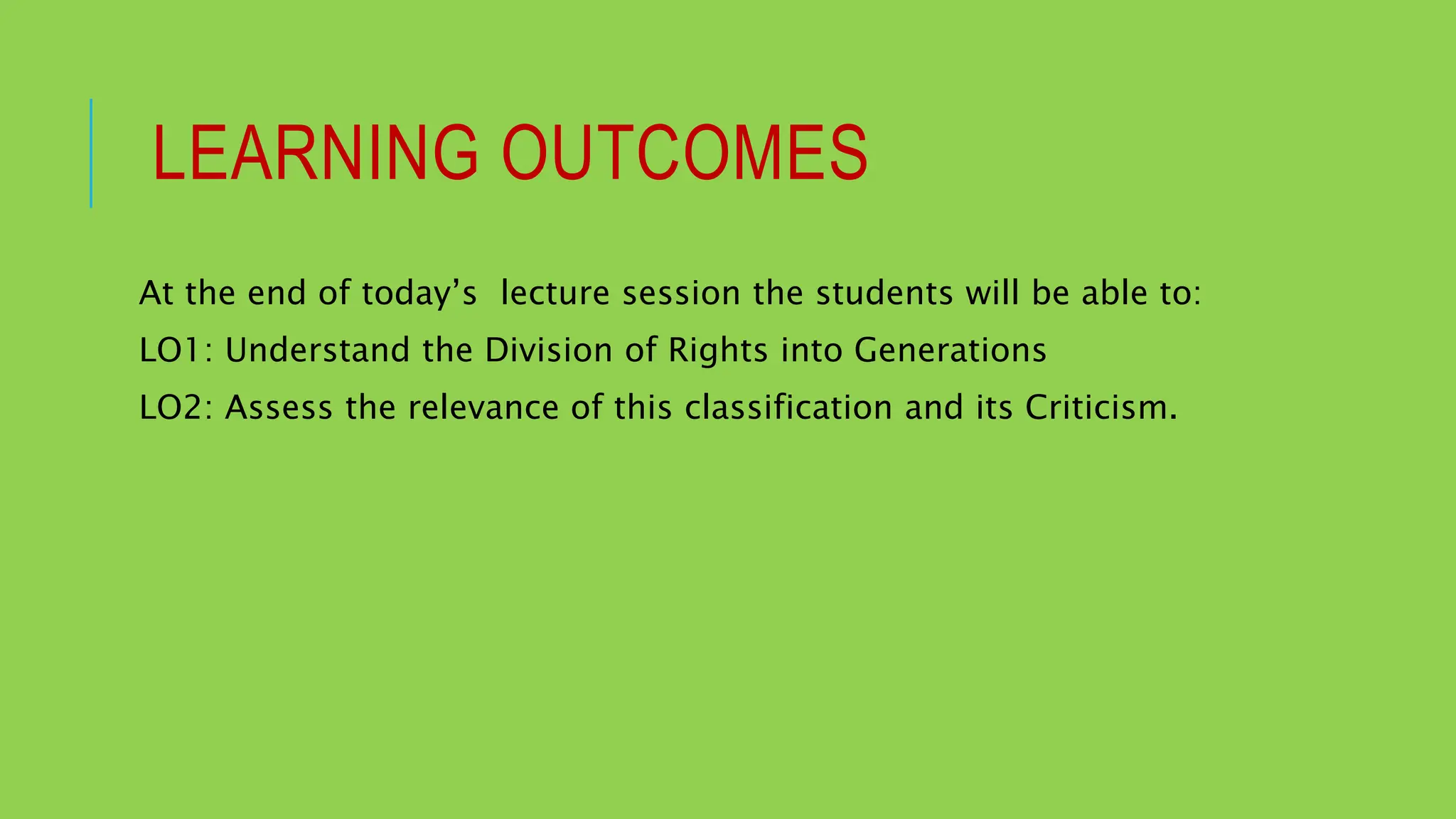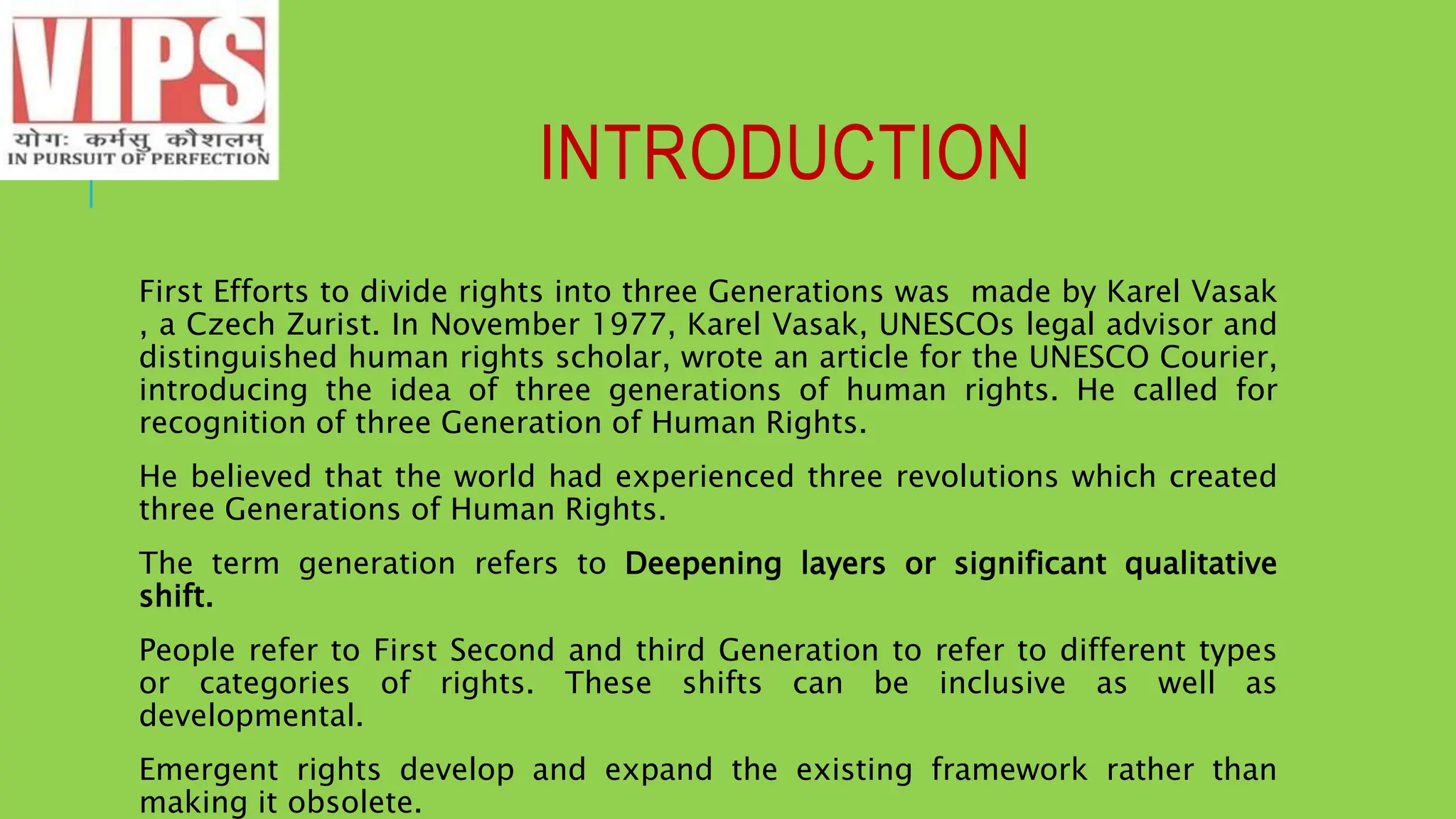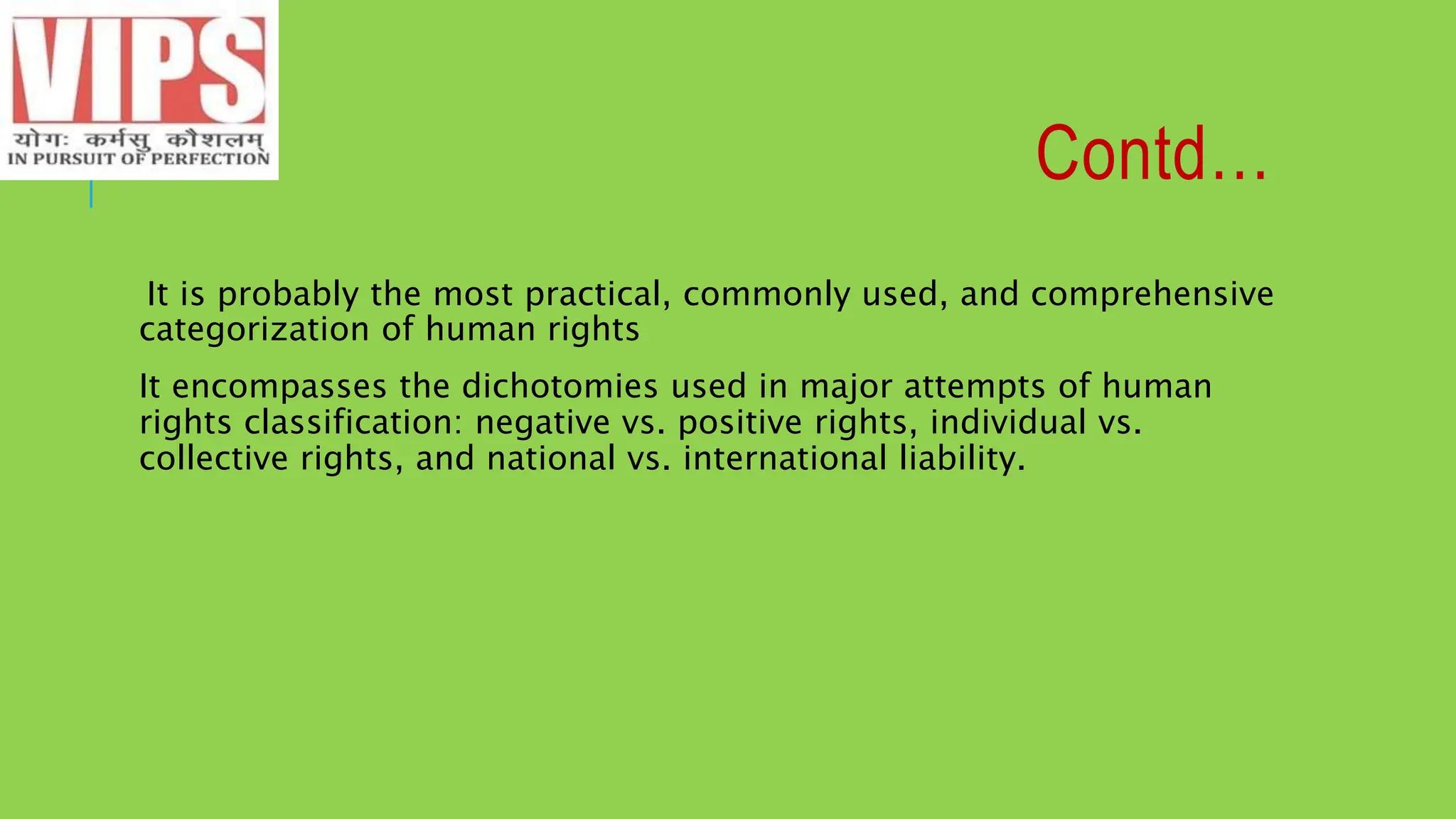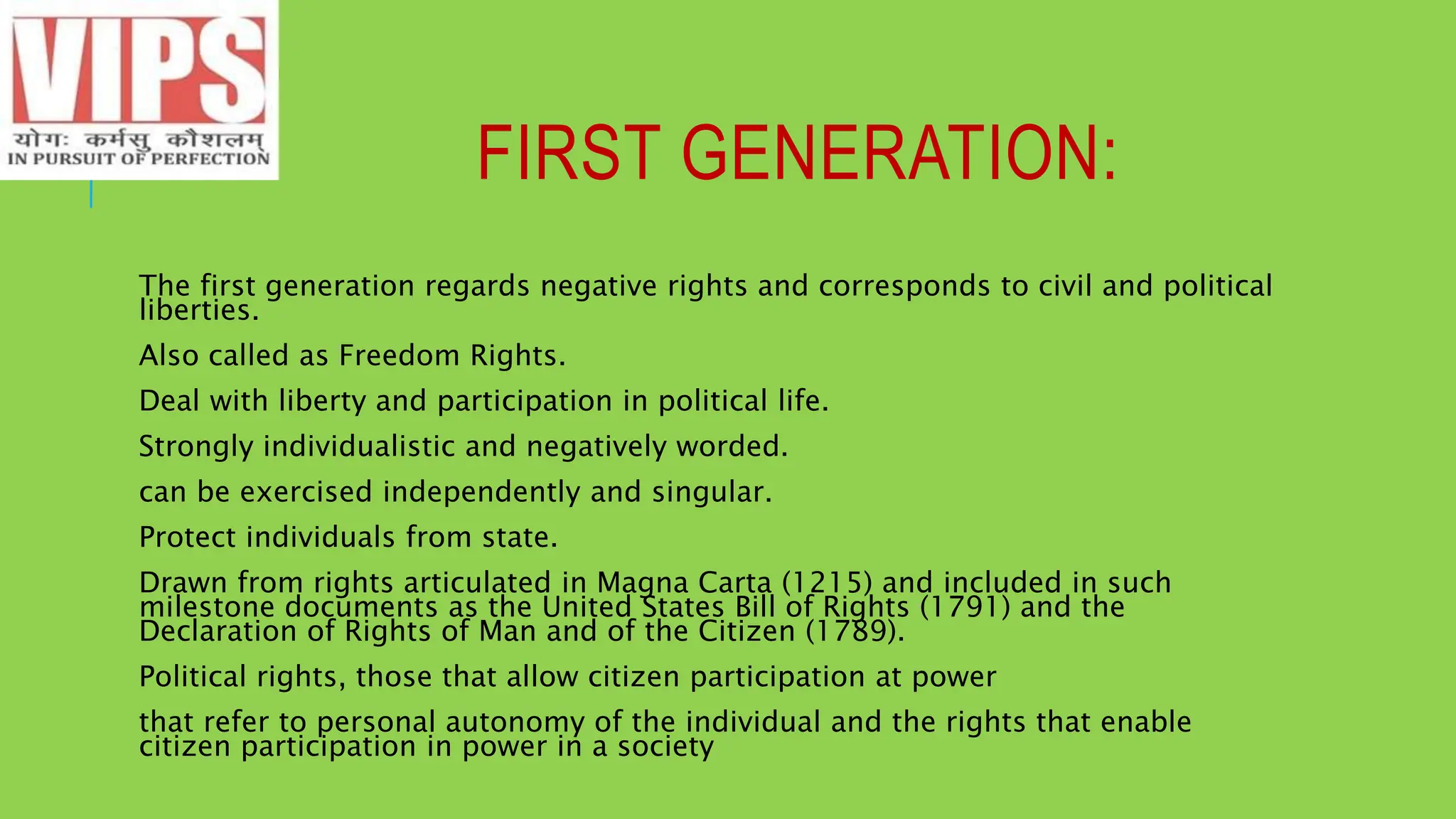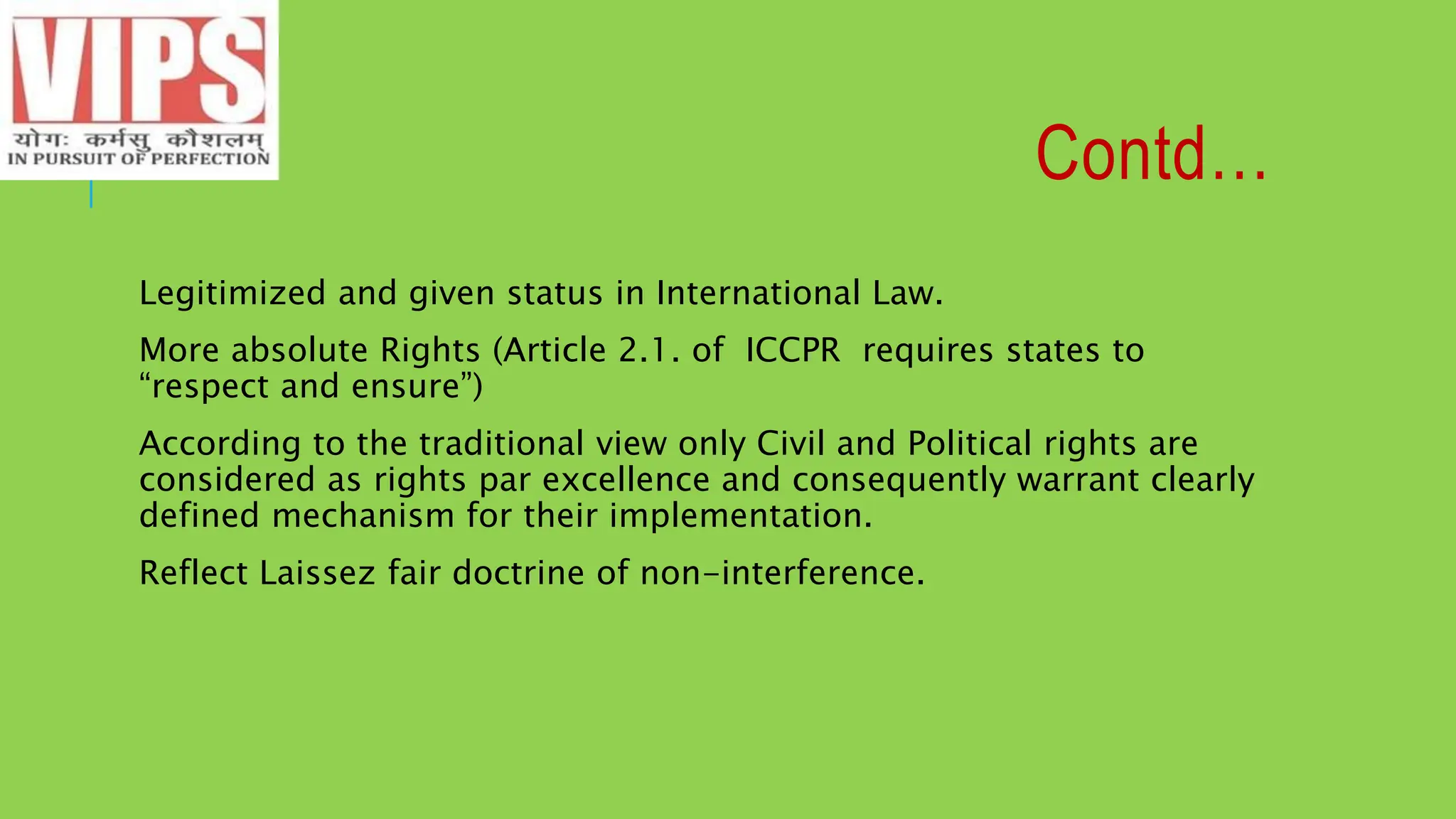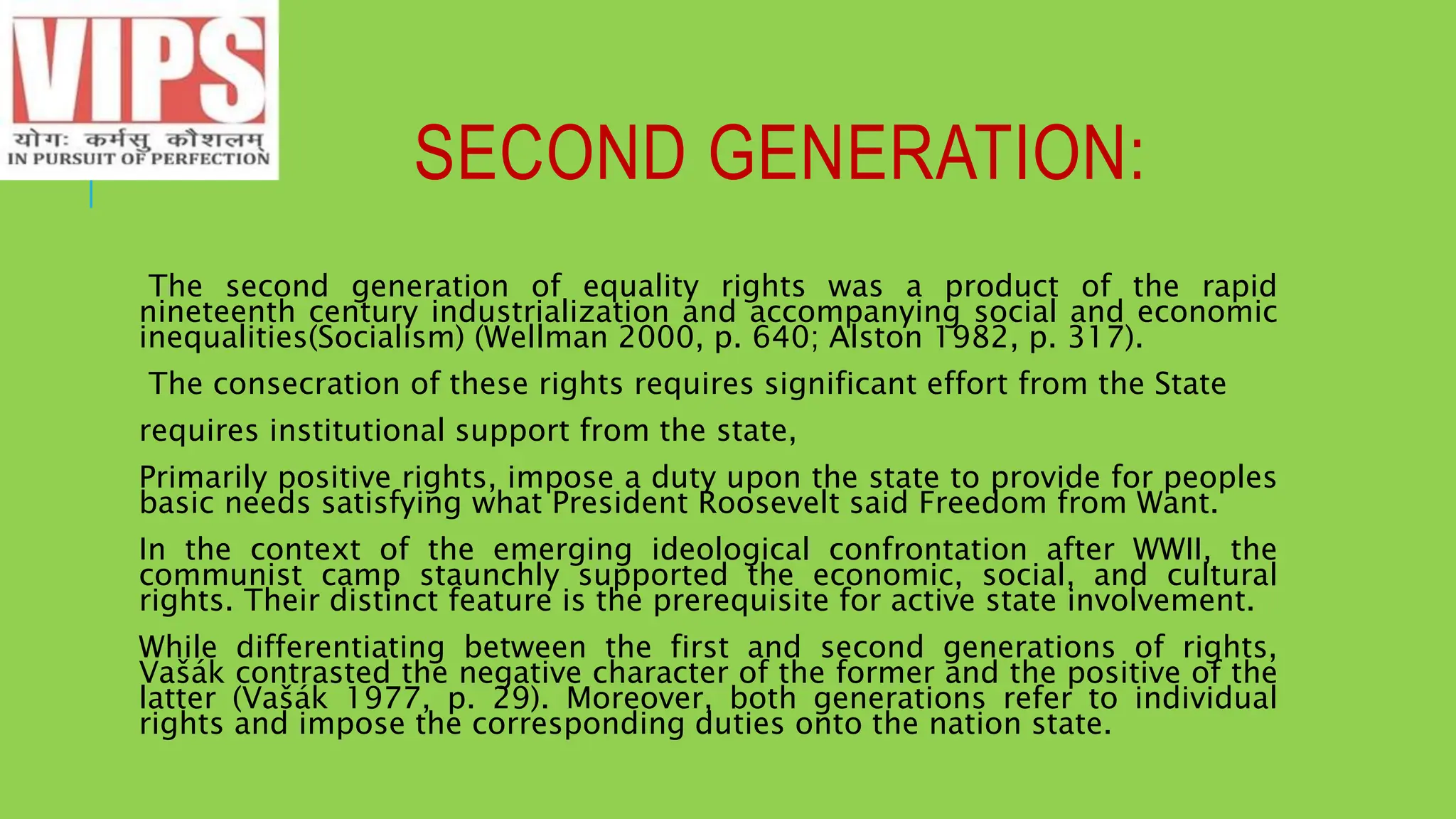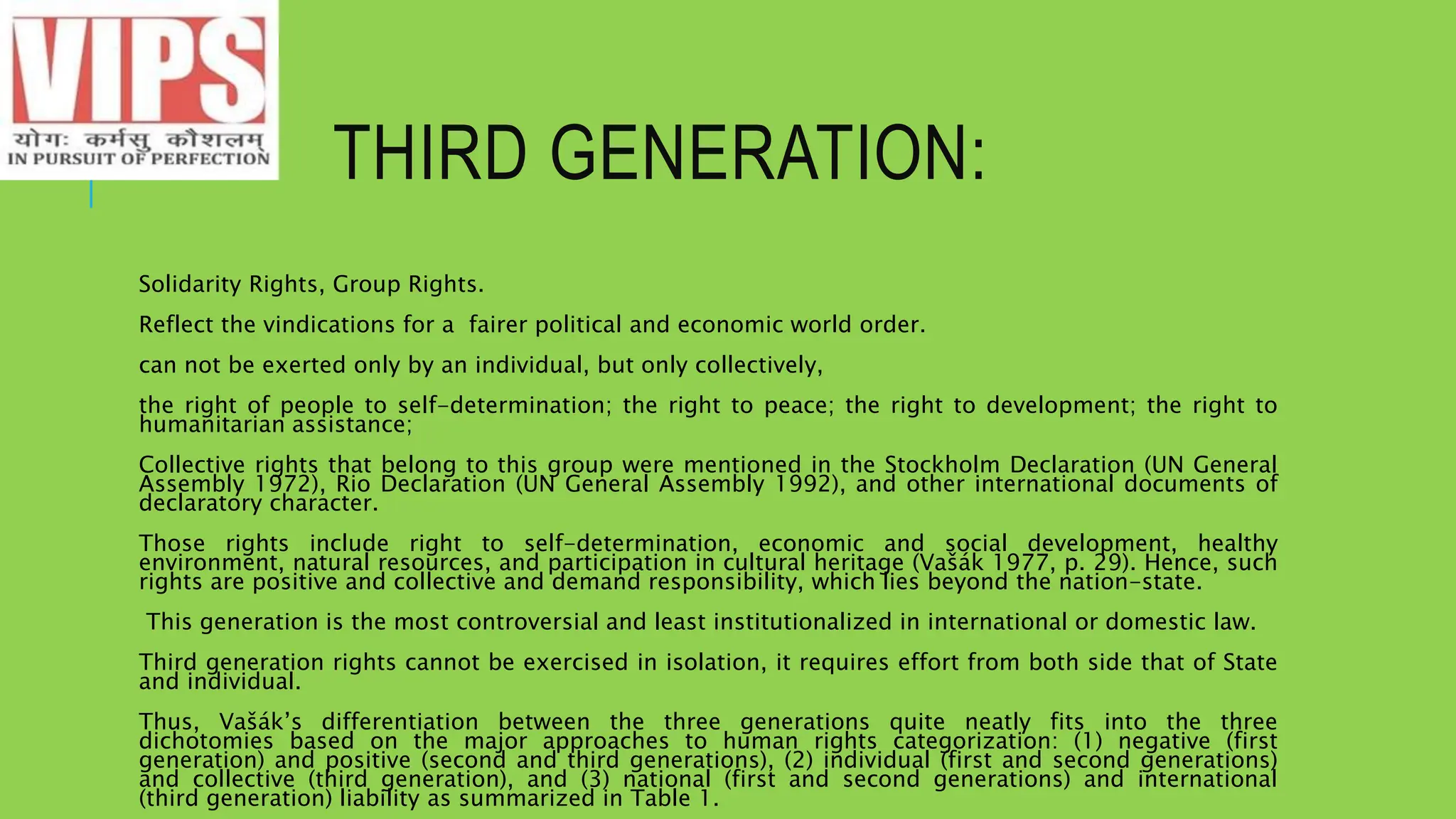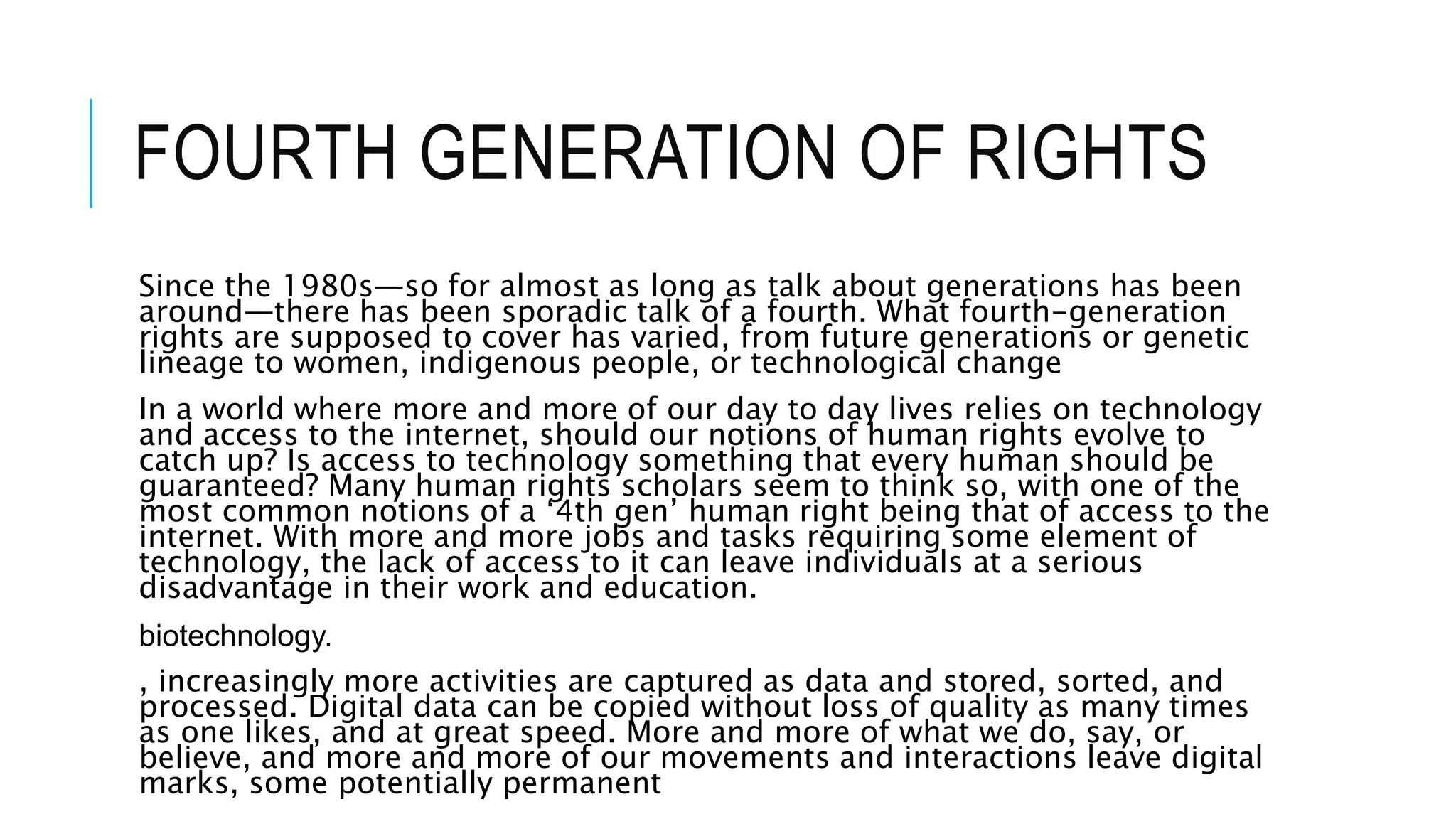- The document discusses Karel Vasak's 1977 proposal to divide human rights into three "generations": first generation civil/political rights, second generation economic/social/cultural rights, and third generation solidarity/group rights.
- It outlines the key characteristics of each generation according to Vasak's framework and provides examples of rights that fall under each category.
- While noting that Vasak's three generations framework is commonly used, the document also discusses criticisms of conceptualizing rights in generational terms and argues that a strict separation of rights into generations is problematic.
